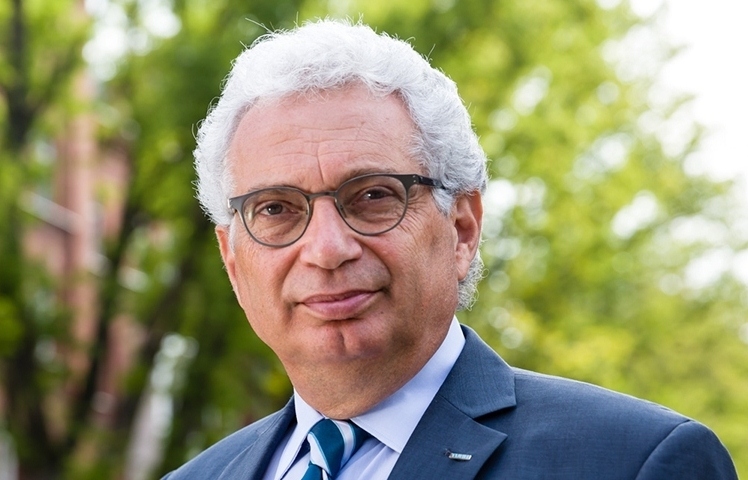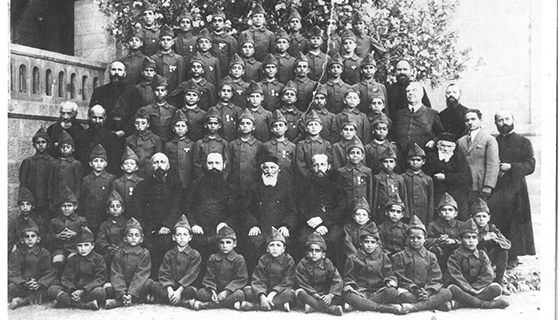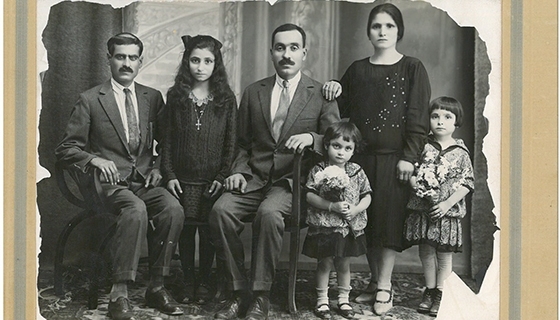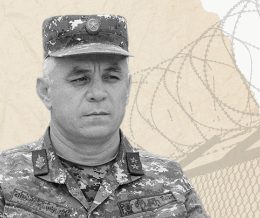
100 Lives Stories: Garabed Antranikian

Professor Garabed Antranikian is a world-famous and highly regarded microbiologist. He is a recipient of the most coveted European environmental award, the Environment Prize of the German Environment Foundation. Antranikian has achieved unprecedented success in developing environmentally friendly products, particularly in the production of new materials and fuels obtained from renewable resources.
Garabed Antranikian does not have much in common with his father except for his height, his diligence and strong will. “My father never spoke much, he was often sad and I always tried to find out why. It wasn’t until I was a little older that he opened up to me a bit,” Garabed says. His father, Josef Antranikian, was born in Sebastia (now Sivas in central Turkey) in 1907.
In 1914, on the eve of the World War I, Sivas’s population was predominantly Christian and consisted mainly of Armenians.
Subjected to systematic attacks, the Armenians of Sivas, as well as of other cities and villages of the Ottoman Empire, were deported and annihilated en masse during the Armenian Genocide starting in 1915.
Eight-year-old Josef witnessed brutal murders. He had no choice but to stand by and watch his family being slaughtered and burned in the church afterward. “My father told me that back in the day, they had a big house in Sivas and that he had many siblings. He remembered his family’s faces, in particular his mother’s,” Garabed says.
Josef ran away. Occasional strangers let him ride on the back of their donkeys or in their carts, but most of the way he passed on foot. “He once saw a small farmstead. The owner was a Kurd who said, ‘You can stay with me and help me, I have a pigsty.’ Josef stayed with the Kurd for a while until soldiers discovered him,” Garabed recalls. Josef was caught and deported to the Syrian deserts, where he wandered for almost two years until he reached Jerusalem in 1917. Once in Jerusalem, he was taken in by an orphanage.

Josef in Jerusalem
In Jerusalem Joseph attended an Armenian school, and after graduation – the Catholic priest seminary. This is where he learned French and was sent to Belgium for one year as a reward for outstanding performance. “After his return he met my mother, which prompted him to reconsider his intention of becoming a priest. He quit the seminary and married her,” Garabed says, smiling.
Garabed’s mother, Elisa Shohmelian, was born in Aintab (now Gaziantep, in southern Turkey). She too suffered a grim fate. “My mother’s four brothers were shot, her parents fled on the backs of donkeys to Aleppo and from there to Jerusalem, where my mother was born in 1920.” They settled quickly into new life in a new city thanks to a growing and prospering Armenian community, which included an Armenian church with Armenian priests and patriarchs.
The friendly atmosphere of the Armenian quarter in Jerusalem was imprinted in Garabed’s memory. “I would spend the summer vacation at my grandparents’ house. I loved those times – days so beautiful and fruit from the garden so ripe. There were lots of children my age in the Armenian neighborhood for me to play with all day,” Garabed recalls. In those years he added Turkish to the languages he speaks, which he learned from his grandparents.

In 1937 Josef and Elisa married and had a daughter named Ashchen. Five years later their second child was born and they name him Antranik. In the meantime, Josef trained to be a carpenter. Life in Jerusalem, however, became increasingly difficult as unemployment soared. “My father looked for work elsewhere and found himself a job in Jordan,” says Garabed. For the time being, they left Ashchen with her grandparents. In their new home they had their third child, a son named Garabed. He was born on April 30, 1951.
Life in Amman
In Amman Josef and Elisa lived in a concrete building that they shared with a large Muslim family occupying the first floor. The family of five lived in a single room, while the bathroom and kitchen were outside. “On a cold day we would think twice before going to the kitchen or the bathroom,” Garabed says jokingly. Despite the lack of comfort, he cherishes the memory of that time. “At night we would have tea, listen to music and play cards. One day we had a TV set – that was in the 1960s. All the neighbors would come over to watch despite the poor signal. We would get a single channel and watch Mickey Mouse in excitement,” he says with a laugh.
Elisa began working as a tailor, and one of her many employers was the Embassy of the United Kingdom. “She would sew curtains, suits and all sorts of things for them. In the morning she would go there and take me with her,” Garabed remembers. By watching his mother sew all day, Garabed soon learned to sew himself. “Believe it or not, I would sew things and sell them at school,” Garabed boasts, adding, “Back then we didn’t have any toys, so I made needle and thread or ants and flies in the yard my toys. I once wrapped a thread around a fly to see what would happen. I thought it might carry me away through the air, but it didn’t.”
Despite never-ending financial instability, Josef and Elisa gave their three children a good education. Ashchen became a teacher at an Armenian school, Antranik – a mechanic. Today, they both live in Jordan with their families, while Garabed seeks out distant climes and a career in science.
To learn more about Garabed’s unplanned journey to Germany through Beirut and which microorganisms serve us well today thanks to Doctor Antranikian and his team of researchers, click here.
The story is verified by the 100 LIVES Research Team.

























